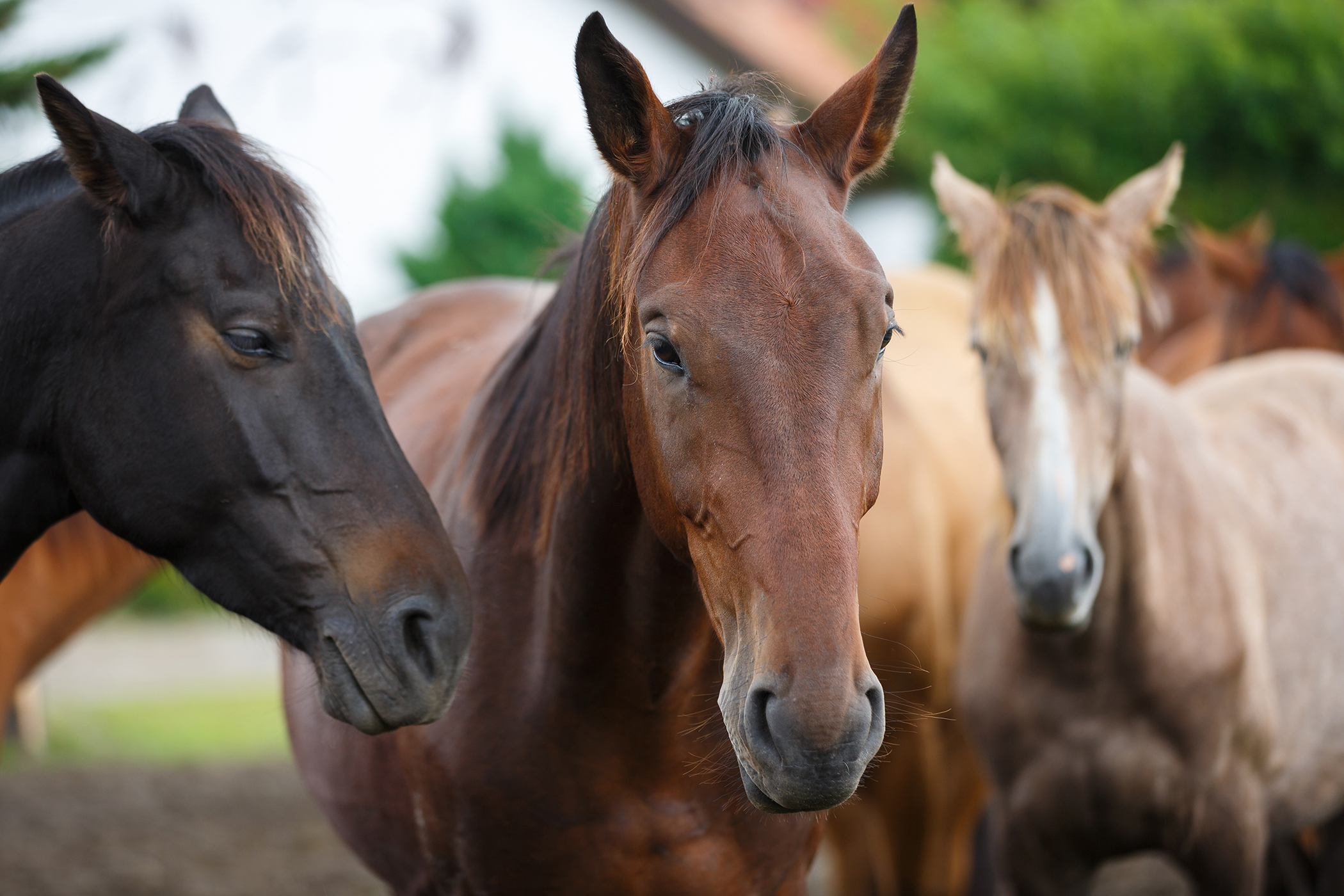For over 55 million years, horses have roamed the Earth, evolving not as predators but as prey. This extraordinary journey has gifted horses with a unique intelligence and an acute awareness of their environment, enabling them to read the body language of other animals and people with remarkable precision. Today, this natural intelligence of horses plays a vital role in Equine-Assisted Learning (EAL), a practice that can enhance personal growth, teamwork, and leadership skills.
The Power of Perception: How Horses Survive as Prey Animals
Horses, being prey animals, rely on a finely tuned sense of awareness for survival. In the wild, every rustle in the bushes could signal a predator, and horses have evolved to read these cues with incredible accuracy. Their large, wide-set eyes allow them to see nearly 360 degrees around, constantly scanning their surroundings for potential threats. But vision isn’t their only tool.
Horses have an exceptional ability to detect even the subtlest changes in energy or body language. A twitch of a predator’s ear or a shift in posture can trigger a horse’s instinct to flee. This sensitivity to non-verbal signals is a skill they use not only in the wild but in their interactions with humans and other animals as well.
Reading the Room: Horses and Human Body Language
Humans communicate primarily through language, but much of what we convey is non-verbal, expressed through our body language, energy, and emotional states. Horses are masters at interpreting these signals. Unlike humans, who may miss subtle shifts in mood or intention, horses pick up on these changes immediately.
For instance, a slight change in posture, a glance, or even the way a person breathes can tell a horse a great deal about that individual’s emotional state. Are they nervous? Confident? Aggressive? Horses respond to these cues instinctively, and because of this, they offer honest, unbiased feedback in every interaction.
This natural ability to read body language makes horses incredible partners in EAL sessions. They mirror the emotional state of the individual working with them, creating opportunities for people to become more aware of their own feelings, energy, and the non-verbal messages they send to the world.
Why Intelligence Isn’t Just About IQ: The Emotional Awareness of Horses
We often associate intelligence with problem-solving and reasoning, but for horses, survival has depended on a different kind of intelligence: emotional awareness. Their ability to sense emotions and read energy is a form of intelligence honed over millions of years.
Their emotional awareness helps them form strong social bonds within a herd, ensuring the safety of the group. It’s also what makes them so effective in EAL programs. When working with people, horses can detect anxiety, frustration, and even joy. Their responses encourage individuals to reflect on their emotions and how those feelings influence their behavior. This emotional feedback loop helps participants develop greater self-awareness and emotional regulation.
What We Learn from Horses
Equine-Assisted Learning harnesses this unique intelligence of horses to help individuals and teams grow. Whether you’re working on leadership development, communication, or personal growth, horses provide instant, honest feedback that challenges participants to become more mindful of their actions and emotions.
- Self-awareness: Horses help individuals understand their emotional triggers and how those emotions influence their behavior. This heightened awareness is crucial for personal growth and leadership development.
- Non-verbal communication: Horses respond primarily to body language and energy, encouraging participants to become more attuned to their own non-verbal cues and those of others.
- Teamwork and leadership: Working with horses in a group setting fosters better collaboration and communication, as teams must work together to guide and communicate with the horse. Horses require clear, consistent communication, which helps teams build trust and enhance their problem-solving skills.
Bringing Ancient Wisdom into the Modern World
The horse’s survival as a prey animal for over 55 million years is a testament to their intelligence and adaptability. By borrowing this wisdom in EAL, individuals and teams can develop key skills that improve their emotional intelligence, leadership, and communication.
Ready to take the next step in your personal or professional development?
At Triangle Equine Assisted Learning, we provide transformative experiences that foster self-awareness, improve communication, and unlock the potential for growth. Our highly trained team, led by Devon Broughton, alongside our incredible equine partners, are here to guide you through experiential learning sessions designed to inspire creativity and empower positive change.
Contact us today to schedule your session and discover how the power of horses can lead you to lasting transformation. Start your journey with us.
